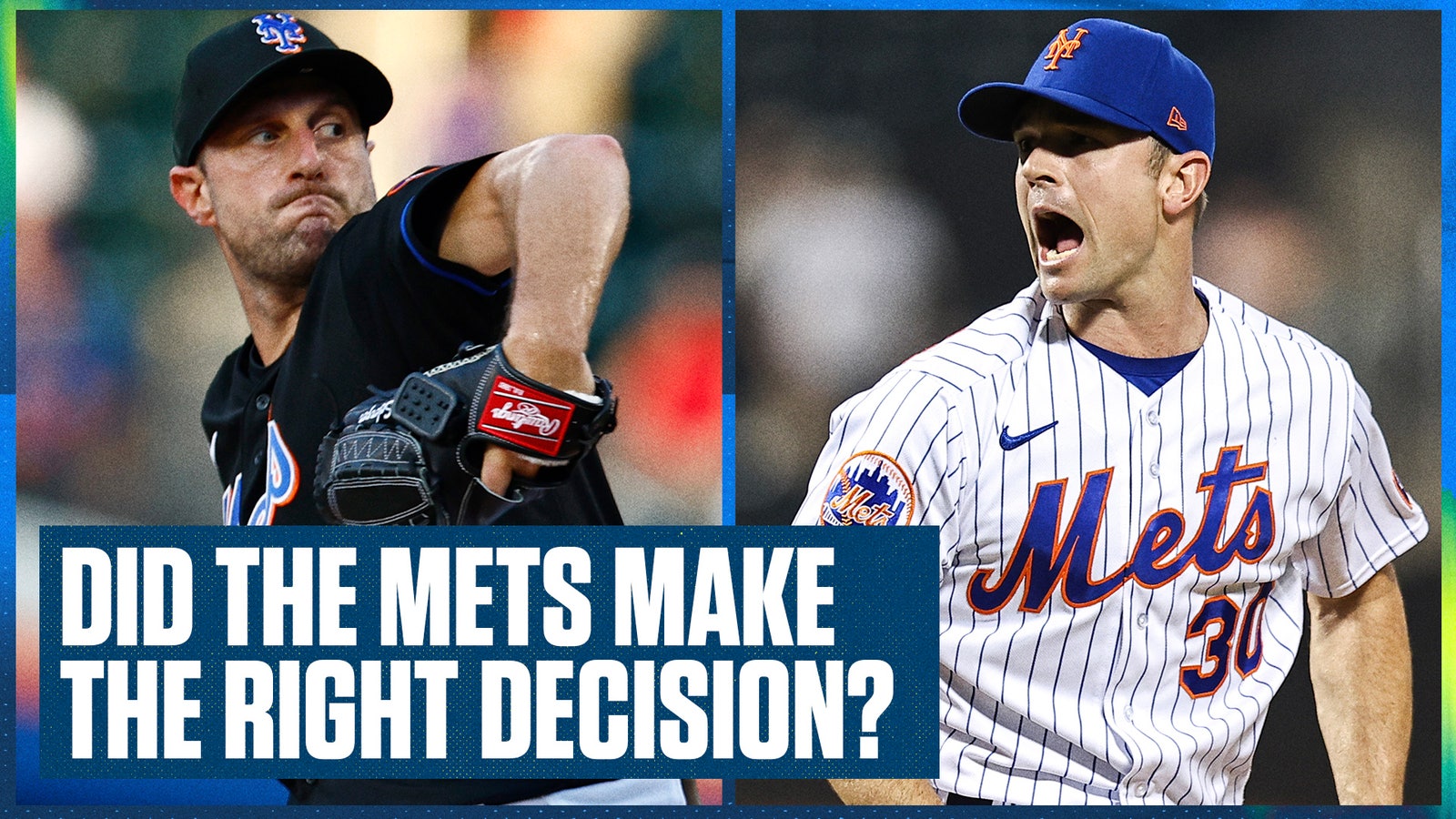
What to make of Mets' early decision to be trade-deadline sellers
The New York Mets officially committed to being sellers several days ahead of the trade deadline.
They shipped out closer David Robertson to the Marlins late Thursday before moving Max Scherzer to the Rangers on a deal that was agreed to on Saturday.
Even though the prospect return for both players seems promising, New York's decision to sell felt a bit premature. The deadline was still five days away at the time of the Robertson trade. In addition, the Mets were 6.5 games out of the final wild-card spot at the time and also had a four-game set against the lowly Nationals over the weekend that could help them climb back into things.
At the very least, the Mets should've seen how the weekend series played out; they would have 48 hours before Tuesday's trade deadline when the series ended (which New York won three of the four games but didn't gain any ground in the playoff race).
The Mets made it clear, though, that they were ready to essentially wave the white flag on Thursday. Not only did they move their top-tier closer, but they also shipped him within the division for two teenage prospects who won't help them this season and probably won't for at least a couple of years.
That goes against my general philosophy on when you should be a seller. Teams shouldn't begin to sell until they know they'll be at least five games out of a playoff spot on deadline day. So while I don't necessarily disagree with the Mets selling, their timing wasn't great.
And that timing seemed to play a hand in Scherzer's trade. Team morale seemed to plummet following Thursday's trade and is sounded like players were quite surprised. Scherzer understandably questioned the direction of the team following his start on Friday because of the Robertson trade, saying he was "upset" by the move and that he needed "to have a conversation" with Mets owner Steve Cohen.
Well, you have to wonder how that conversation with Cohen went — because the Mets agreed to move him less than 24 hours later and almost an hour after the trade was agreed to, Scherzer agreed to waive his no-trade clause. The Mets general manager told reporters Sunday that it was a "strategic decision" to trade both Robertson and Scherzer when they did.
But I still don't think it was the best strategic move for the Mets to offload them right away — at least in the case of Scherzer. The Cubs made it known through reports over the weekend that they won't be selling, taking Marcus Stroman off the market, which in turn would've made Scherzer the top available pitcher ahead of Tuesday.
If New York waited, it could've made Texas sweat things out with fellow American League contenders Baltimore and Houston in a bidding war all the way up until the deadline. The Rangers obviously made it clear that they weren't in the market for just one starting pitcher either, as they made a trade for Jordan Montgomery on Sunday.
Now, the Mets didn't do too badly in either trade. They got infielder Marco Vargas, who I've heard a lot of good things about along with catcher Ronald Hernandez for Robertson.
Luisangel Acuña (sidenote; he's going to be a Hall of Famer with that name) was the big get, in return for Scherzer. He's a top-50 prospect in all of baseball by just about every ranking and immediately becomes the Mets' No. 1 prospect. He's close to the big league ready, hitting .315 with seven homers and has 42 stolen bases at 21 years old in Double-A.
But it also cost a lot to get him. The Mets obviously gave up Scherzer, but they're paying all but $22.5 million of his salary over the next two years. They sent the Rangers $35.5 million and Scherzer picked up his option for the 2024 season to help facilitate the trade.
The Mets should get some credit, though, for not moving their ultimate chip, Justin Verlander, yet. He's gotten back to his Cy Young form lately, posting a 1.49 ERA over his last seven starts and now has a 3.15 ERA on the season. That's noticeably better than how Scherzer's pitched this season with the 39-year-old's fastball playing at an all-time low to go along with a 4.01 ERA.
Not only has Verlander pitched better than Scherzer, but he could be under contract through the 2025 season if he pitches 140 innings in 2024. Scherzer's deal ends next year.
I've felt through much of the trade deadline season that the Mets won't trade Verlander for those reasons. The return would have to be astronomical and the number of teams willing to meet that price might not be high. For instance, Astros general manager Dana Brown recently said that his team isn't in the market for a starting pitcher despite speculation of a possible return (and numerous tweets from Astros fans being sent my direction hoping my brother ends up back in Houston).
But even Justin Verlander might not even know what lies in the hours ahead of the deadline. He gave similar comments as Scherzer prior to his trade, admitting that the trade "change my opinion a little bit" about the direction of the Mets.
"I'm committed to trying to win a championship here," Verlander said. "But if the organization decides that that's not exactly the direction that they think is best fit to go for next year and go for it again, then, yeah, I'd be more open to it.
"Right now there's a lot of gray area. I can't make a decision on a lot of what-ifs. I deal in facts."
Even though I don't see the Mets ace getting traded, anyone's guess is as good as mine at the moment.











